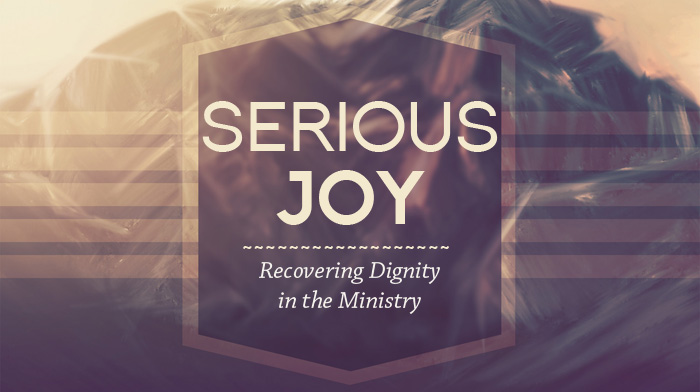In The Courage to Be Protestant David wells wrote, “The conventional wisdom is that seriousness is the death knell of successful churches. In an age of entertainment, such as our age is in the West, we have to be funny, likeable, and light to succeed. So, seriousness must be banished.”
He’s right; the contemporary culture turns up its nose at seriousness, finding its stench to be less than pleasant.
But the Bible tells us a different story.
THE SMELL OF SERIOUSNESS
One of my best friends growing up was a guy named Cary Wicker. For thirteen straight years we played on the same soccer team, so we were around each other a fair amount of each week. I spent many days and nights at the Wicker home, and theirs was a home that had a distinct aroma. Looking back on it now, I’m pretty sure it was mostly due to the cigars that Mr. Wicker was known to enjoy throughout the week. Whatever it was, wherever Cary went he always carried the Wicker aroma around with him.
The summons of Christian ministry is one that has a distinct flavor. Theologically, it has Trinitarian smell: God’s glory in Christ as revealed by the Spirit. Practically, according to the the qualifications of 1 Timothy 3 and Titus 1, it smells of the grace and knowledge of the Good Shepherd. Ministerially, it smells of serious joy in a Sovereign Savior.
Preach the Word. Shepherd the flock of God. Do the work of an evangelist. Train yourself for godliness. Set for the believers an example. Be ready in season and out of season. Fulfill your ministry.
These are commands, not considerations, for gospel ministry. Obedience in these matters requires a peculiar level of seriousness from a pastor who longs to be faithful. Our people need gravity, not levity to mark our ministry. A ministry of godly gravity anchored to Christ is one that even the storms of life cannot blow away. But lighthearted levity? The wind of the world will quench that flame with astounding ease.
THE SOUND OF SERIOUSNESS
The danger of talking about seriousness in a 21st century context is that the noun is viewed as a vice, not a virtue. To our culture, seriousness not only stinks, but it’s also scary. I’ve seen godly saints model sobriety in life and heard younger people turn it upside down by thinking “seriousness” is just a way older generations make “snobbery” more palatable. If you don’t know what I’m talking about, just consider what the average person thinks about classical music.
I find that most people today view classical music as a relic of high culture that’s inaccessible to modern tastes. The orchestration is too complex and tone too somber. What we really want in our music is a jingle to lift the the spirit, not a soaring score so rich it will take you dozens of listen before you will fully appreciate it.
So it is with seriousness. “Reverence is outdated,” cries the culture, “Casual familiarity is in.” Simplicity in tone stirs the soul, while weighty complexity stifles the heart. But is that really the case?
A LONG LINE OF SERIOUS MEN
If we could go back to the first century, I’m pretty sure we’d find the descriptor of “seriousness” to be most apt of our Lord’s apostles. They were men zealous for the things of God, humbled before the majesty of God, and satisfied in the life of God. But we dare not accuse them of having no joy! Too many doxologies flowed out from their hearts. We could then take a trip through church history and discover all the great saints of old still revered today are those whose lives embodied “serious joy.” I mean, would anyone dare tell Luther his zeal for reforming the church left him void of joy? His students who received the original “Tabletalk” would think you silly if you questioned the German’s joy. Would someone question Spurgeon’s gravity before God because he seemed so prone to jokes and humor? Ask any member of the Metropolitan Tabernacle and they’d look at you askew, for week in and week out he preached a serious Christ with serious passion.
Read about the lives of Augustine, Calvin, Owen, Edwards, Whitefield, M’Cheyne, and Lloyd-Jones and you’ll get the sense that God has blessed serious joy in peculiar ways.
ANOTHER PARADOX?
Paradoxes about in Scripture: the weakest are the strongest (2 Cor. 12:10); the last shall be first (Mark 10:31); the humble are exalted (Luke 14:11), you must lost your life to find it (Matt. 10:39); we die to live (2 Cor. 4:10). Although I don’t think “serious joy” is a biblical paradox, it sure seems to be a cultural paradox.
We are very good at erecting false dichotomies and I wonder if many of our church members would see seriousness and joyfulness as standing against one another. Well, pastor, go shatter than notion in your life and ministry. Show them the attractive weight of seriousness and the beautiful coloring of joyfulness.
Be “serious joy” on display.

